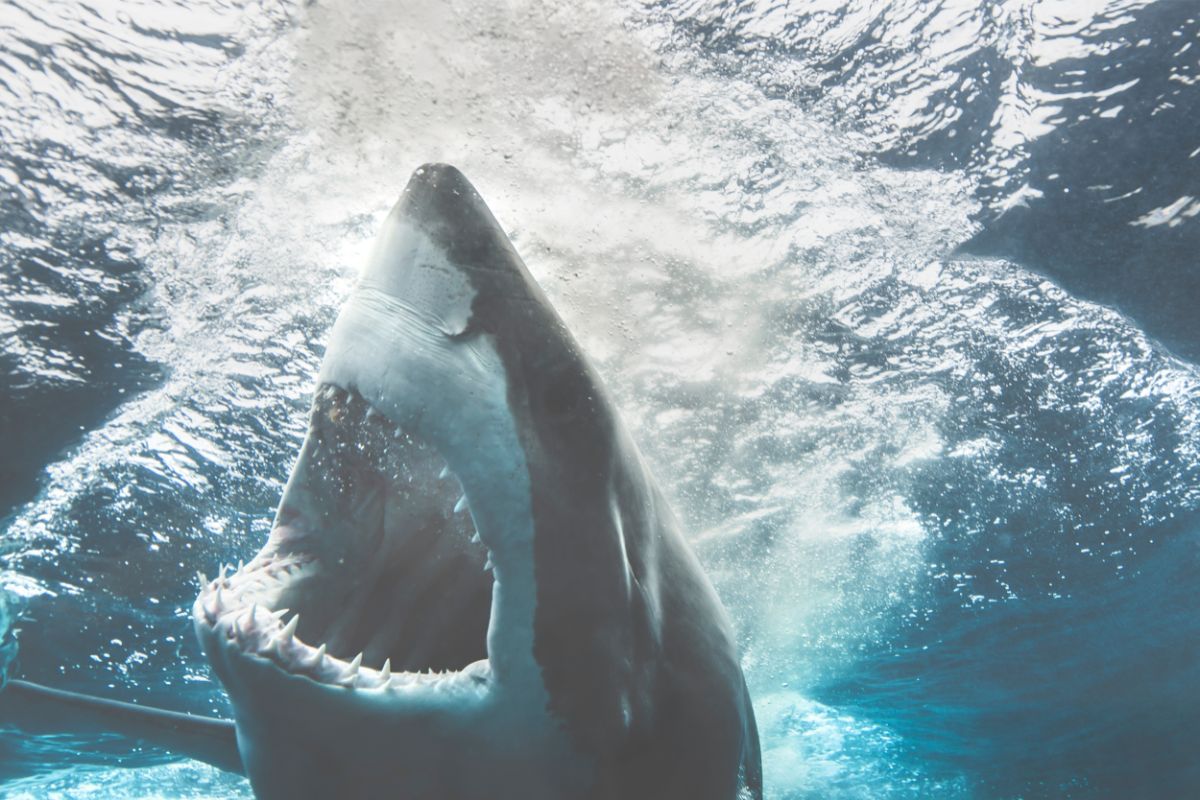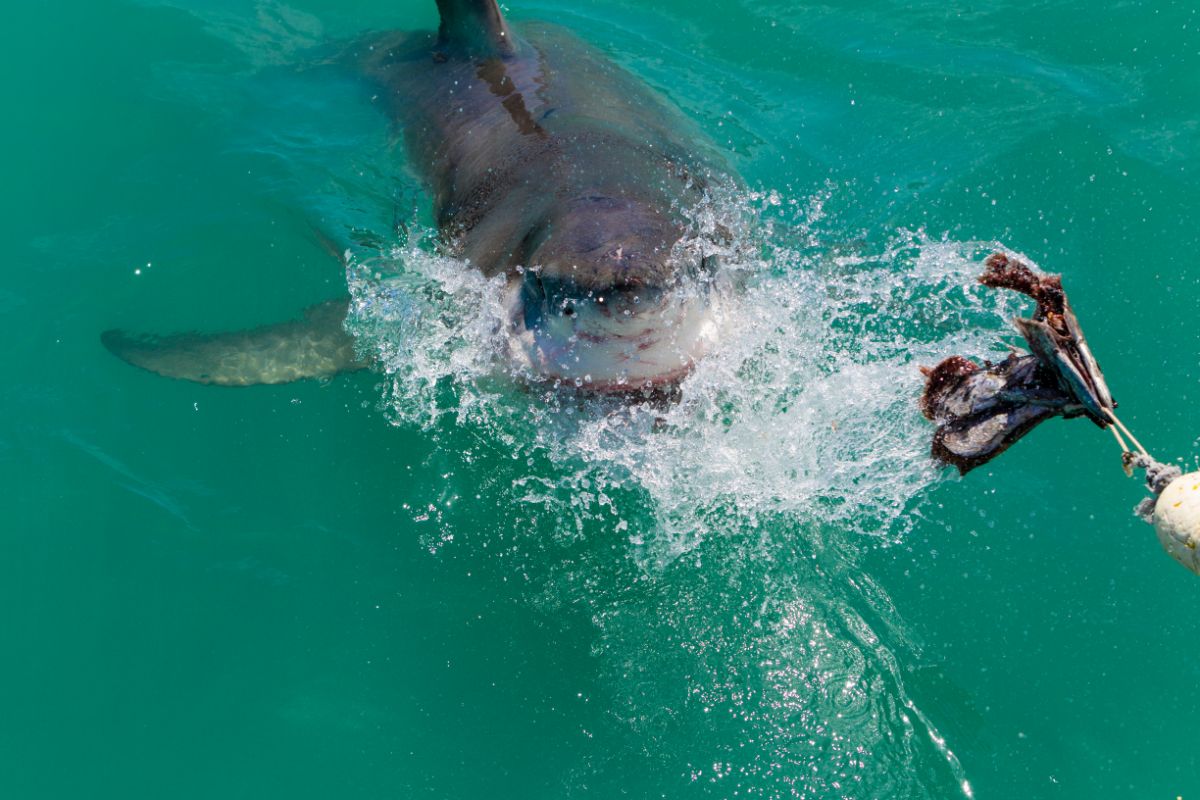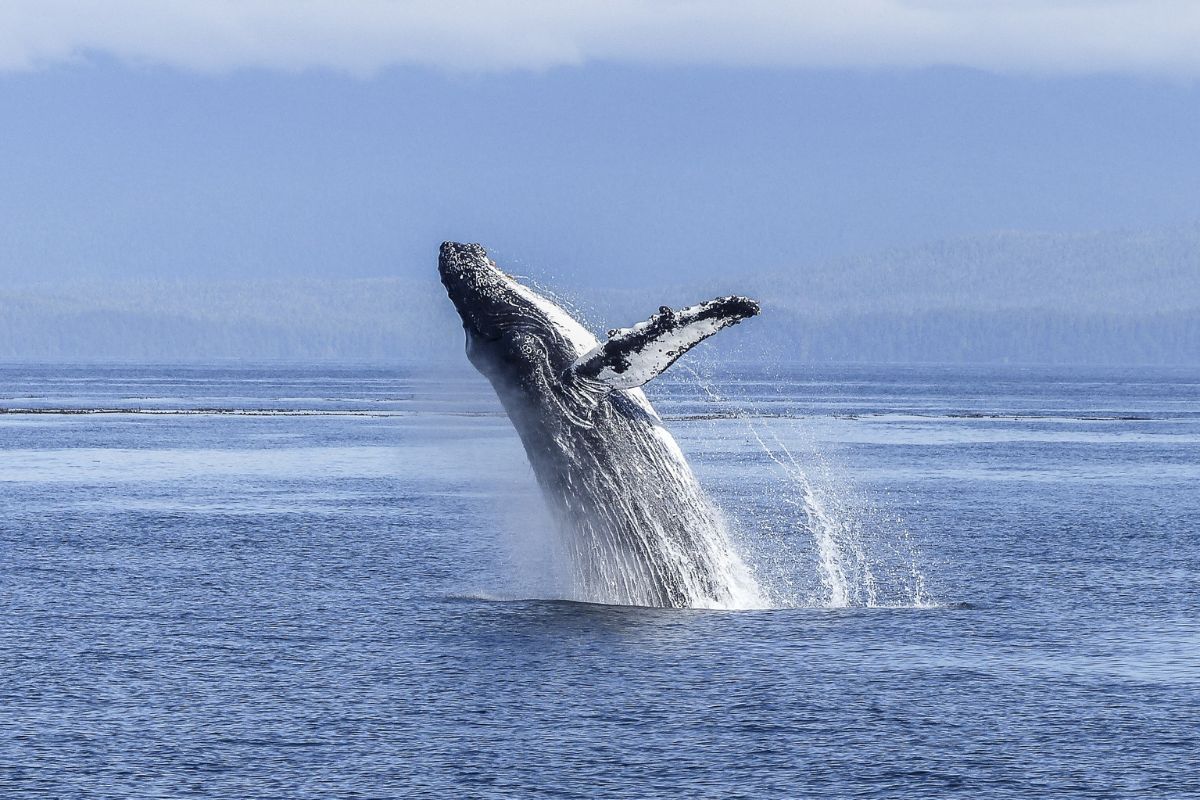Sharks are one of the ocean’s biggest and quite frankly most terrifying predators. In fact, thanks to Jaws, most of us have a pretty clear image in our heads of what shark attacks entail and just how vicious they can be.
However, past the fact that shark attacks seem extremely scary, most people don’t know much more about shark attacks. For example, did you know that punching a shark isn’t your greatest defense? Or that women are safer from sharks than men?

If these two facts surprise you, you’ve come to the right place. In this post, we want to clear things up and share some truths about shark attacks.
Therefore, we’ve listed the most interesting real shark attack facts.
If you want to learn more, make sure you keep reading!
1. Shark Attacks Are Incredibly Rare And Almost Never Deadly
Despite what you may or may not believe about the water and sharks, the chances of you encountering a shark in the water, let alone being attacked by one are incredibly slim. Even then, the chances of an attack being deadly are tiny.
In fact, you’re more likely to injure yourself in a boating accident than you are in a shark attack. To give you some perspective, there’s approximately a 1 in 11.5 million chance you’ll have an encounter with a shark.
In 2021, there were only 137 total shark attack cases worldwide. Only 11 of those result in deaths.
2. We’re The Killers, Not The Sharks
While most people consider the shark to be a killer, the truth of the matter is that we are. For every human a shark attacks and kills, humans kill roughly 2,000,000 sharks.
Considering a lot of people would have us believe sharks are the problem, this goes to show that we are the ones that are doing more killing. If things don’t change, shark populations could soon go extinct.
3. Punching A Shark Isn’t Your Best Line Of Defense
For many years, it has been reported that the best way to stop a shark attack when a shark goes for you is to do all you can to punch it in the nose. While it is possible that a clear strike to a shark’s nose could prevent an attack, it isn’t your best defense.
Moving your arms in the water with enough power to deter a shark is surprisingly difficult. As a result, the recommended approach if you’re unlucky enough to be attacked is to grab the shark’s gills or eyes. This is definitely easier said than done.
4. Very Few Species Of Shark Will Attack Humans
There are nearly 500 different species of shark in the world. Of those 500 species, only approximately 30 have ever attacked humans.
The three species of shark responsible for the most attacks are bull, tiger, and the great white. Even then, most of the time, these sharks won’t deliberately attack a human if they come across them in the water.

5. Men Are More Vulnerable To Shark Attacks
Interestingly, research would suggest that men are more vulnerable to shark attacks than women. A Nat Geo Wild study once found that 93% of shark attacks from 1580 to 2010 were on men or boys.
However, this isn’t necessarily down to the fact that sharks like the taste of men better. Instead, it’s down to the fact that more men surf, SCUBA dive, and boogie board than women. All of these sports increase the chances of being attacked by a shark.
6. Shark Attacks Are More Common In September
In the United States, an interesting trend seems to occur in September. In September, shark attacks spike, making the water that little bit more dangerous.
This can be seen clearly in statistics surrounding Florida and its shark attacks. Florida has the most shark attacks in the United States. Most of these attacks occur in September. From 1926 to 2019, there have been 103 reported attacks in that month.
This is a lot more than the 84 reported in August and 61 reported in June.
7. Sharks Eat Breakfast And Dinner
One quirky fact about shark attacks is that, like us, they eat breakfast and dinner. Of course, this is only a cool fact if you’re not either of those things.
In a day, a shark will eat between 0.5 and 3 percent of its body weight in food. This isn’t too different from us as we eat approximately 2 percent of our body weight per day.
8. New Smyrna Beach Is The Shark Attack Capital Of The World
If you’re scared or paranoid that you might one day be the victim of a shark attack, swimming at New Smyrna Beach in Florida isn’t a good idea. In fact, you’d do well to get us in the water there.
New Smyrna Beach is the shark attack capital of the world. With 17 attacks last year alone, this beach is known for shark attacks. Sharks are so common at the beach that ISAF has estimated that anyone that has ever swam there has come within 10 feet of a shark.
9. Most Shark Attacks Occur Close To Shore
Most shark attacks happen in shallow waters. There are a number of reasons for this but of course one of them is down to the fact most people stay in shallow waters. Sharks don’t typically attack in deeper waters because not many people swim there.
Most shark attacks occur less than 100 feet from the shore. Unbelievably 201 out of the 220 great white shark attacks since 1907 also occurred less than 6 feet from the surface.
10. The Safest People In The Water Could Be Snorkelers
If the statistics are anything to go by, the safest people might be those in the water snorkeling or SCUBA diving.
The reason for this is that 72% of shark attack victims in the last decade were people on top of the water surfing, water skiing, and taking part in other water sports.
Final Thoughts
That concludes our list of real shark attack facts. You should now have a much clearer understanding of shark attacks and what they entail.
Some of the facts on our list may have surprised you, whilst others may have made you even more scared of the water.
Whilst shark attacks will always be a scary thought and reality, what we will say is that shark attacks are more often than not accidental and are extremely rare.
After all, humans are the biggest threat to sharks not the other way round and if we don’t change things quickly, most sharks will soon be extinct.
- What Do Squirrels Eat? Learn About Their Diet and Winter Survival - October 14, 2024
- What Do Raccoons Eat? Discover Their Diet and Eating Habits - October 6, 2024
- What do foxes eat? - October 5, 2024








